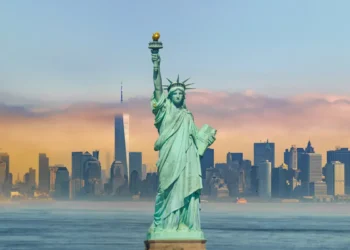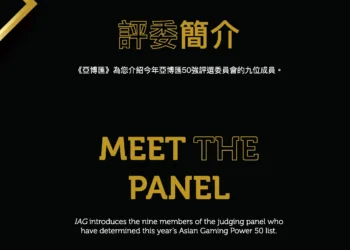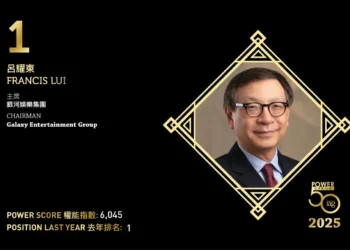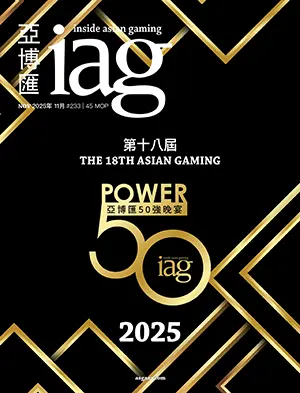Macau’s shortage of taxis hurts the economy—as well as leaving the punters bad-tempered
Anyone who’s ever tried to hail a cab in Macau—especially during the morning and evening rush hours or when it’s raining—will have experienced the territory’s labour squeeze at first hand.
There are currently only 900 licensed taxis—one for every 614 people living in Macau, according to data released to lawmakers by DSAT, the territory’s transport department. By comparison, in London there’s one hackney carriage (also known as a ‘black cab’; that can be hailed in the street) for every 356 inhabitants.
While Macau is far more compact than a metropolis such as London (11.39 square miles compared to London’s 607 sq. miles) and many people in Macau can make short journeys by bus, the locals in Macau are also competing for cabs with an average of 69,600 daily visitors. London averages 82,200 tourists daily—but they are distributed mainly across the West End, not across all districts as in tiny Macau. London also has 50,000 licensed minicabs in the suburbs, although these have to be prebooked and cannot be hailed in the street. Macau’s daily taxicabs-to-people ratio (including tourists) is one taxi for every 691 people (see table below).

This Macau taxi numbers game plays out in all sorts of ways—few of them helpful to the benighted resident or visitor. One effect is that during busy evening periods, as many as seventy-five people can be found patiently waiting for cabs outside Grand Lisboa—SJM’s flagship property. (We know because we counted them one day while waiting.) In Las Vegas, Hong Kong or London, such queues generally move quickly as drivers alerted by radio respond to specific demand. In Macau, it’s common for the would-be taxi customers to see taxi drivers across the road at the old Casino Lisboa with their feet up or chatting to colleagues, and their ‘On Call’ signs displayed in the windows of their vehicles.
The shortage of Macau cabs and people to drive them has created a seller’s market. It’s common for Macau taxi drivers to cherrypick customers—on occasions refusing to accept a fare for a journey they consider too short or too low-paying; or simply flashing up their ‘On Call’ sign or switching off their ‘For Hire’ sign as and when the mood takes them. This correspondent has sometimes found it necessary to stand in the middle of the highway in order to flag down a Macau taxi with its ‘For hire’ sign beaming brightly, when it became obvious from the speed and demeanour of the driver that he had no intention of stopping if he could help it. Sometimes scuffles even break out as customers compete for one taxi. At Macau International Airport, two workers are assigned full-time taxi-wrangling jobs—one to make sure the passing cabs actually stop at the rank, and one to stand upstream of the waiting customers to prevent people from queue-jumping.
In 2011, the Macau authorities received a record number of customer complaints over taxi services—1,559—an average of more than four complaints a day, according to the Portuguese-language newspaper Tribuna de Macau. The most common complaint— in 31% of cases—was a refusal to take a passenger. This is a breach of licensing rules, but as ever in Macau, the issue is not the existence of rules, but the willingness to enforce them. According to Tribuna, only 172 of the 1,559 complaints led to a fine, warning or recommendation against the driver or operator concerned. The remainder of cases were left on file; reportedly for lack of corroborating evidence.
The scarcity of taxis in Macau has a hidden cost for the economy. Every minute spent in an often fruitless search for taxi transport is a minute fewer spent by visitors in Macau’s casinos, hotels and restaurants, or a minute fewer spent being productive during the business day by Macau’s resident and non-resident workers. This correspondent has frequently had to resort to using buses to get to business meetings at casinos on Cotai, with the extra journey time that this entails.
The long-promised light rail system—that will link Macau peninsula with the new casino resort zone of Cotai—will go some way to reducing the public transport problem. But the implementation of the scheme has been put back many times. It’s difficult to avoid the conclusion that some vested interests in Macau— including the taxi drivers; the private bus companies who make a good living leasing shuttle vehicles to the casinos; and possibly the casinos themselves (who would rather have the players funnelled straight to their doorsteps on four wheels than being presented with the freedom to hop on and off a rail system)—are putting pressure on the government to postpone the scheme indefinitely.
As far back as December 2010, the government announced that Japan’s Mitsubishi Heavy Industries had won the tender to supply the track and rolling stock for the first phase of the light rail network, with a bid price of MOP4.688 billion (US$586 million). But then in August 2011, it was reported in the local press that the Macau Chief Executive’s office had decided on a three-year “legislation study” on the project by the China Academy of Urban Planning & Design. If that doesn’t qualify as a delaying tactic imposed for opaque political reasons, then we don’t know what does.
The total cost of the light rail civil engineering project has also risen 46% in three years—to at least MOP11 billion (US$1.4 billion). It therefore joins a long and not very honourable list of Macau infrastructure schemes that have gone massively over budget. They include the current project for the University of Macau’s new campus on Hengqin Island, and the building work to host the 4th East Asian Games in Macau in 2005 (when the current Chief Executive Chui Sai On was in charge of the Games’ implementation plan under the territory’s former chief executive Edmund Ho). That scheme went 70% over budget and was also marked by scandal.
The then secretary for Transport and Public Works, Ao Man Long, was accused of receiving a MOP50 million (US$6.2 million) bribe in connection with the construction contract for the games’ centrepiece, the Macau Dome indoor arena. Ao was later jailed for corruption; though there was no suggestion of criminality on Mr Chui’s part.
With what economists refer to as ‘structural full employment’ in Macau—with only the sick, the lame and the downright unemployable out of work—simply issuing more taxi licences won’t necessarily fix the transport problem. It’s hard to find a taxi driver in Macau under the age of 50. A goodly number look as though they’ve been driving since Dr Stanley Ho started STDM’s casino monopoly in 1962. A Macau cab licence currently has a price tag of MOP800,000 to MOP1 million (US$100,000 to US$125,200) over a set period, according to figures from the Macau Taxi Federation. That’s a significant barrier to entry for owner-drivers. Most young people would rather have the jam today of a MOP13,000 monthly salary as a casino dealer on leaving senior high school at 18 (though casino entry age and thus dealer entry age will soon be raised to 21), than the bread and water of years paying off an owner-driver taxi licence or working as a driver employed by a cab licence owner.
A government plan to issue another 200 cab licences announced this month will take the ratio down to one cab for every 565 locals/visitors. But one lawmaker estimates an extra 500 drivers will be needed to staff them. There’s also concern from some lawmakers that even if drivers can be found for the new licences, they will prefer to station their vehicles empty or idling outside casinos in the hope of a big fare or lucrative tip, than ply the streets of poorer neighbourhoods.
Lawmaker Chan Meng Kam has called for restrictions to be imposed on the new cabs to prevent them swarming outside casinos. But the Taxi Federation suggests any such restrictions could depress the price the government can charge for the new licences. That raises the question of why—with such a shortage of taxi drivers in Macau—the premium for a licence is kept so high. It’s not as if—with a near 40% tax on casino turnover and a budget surplus in 2010 of MOP41.88 billion (US$5.24 billion)—the government desperately needs the money.








-120x86.jpg)























